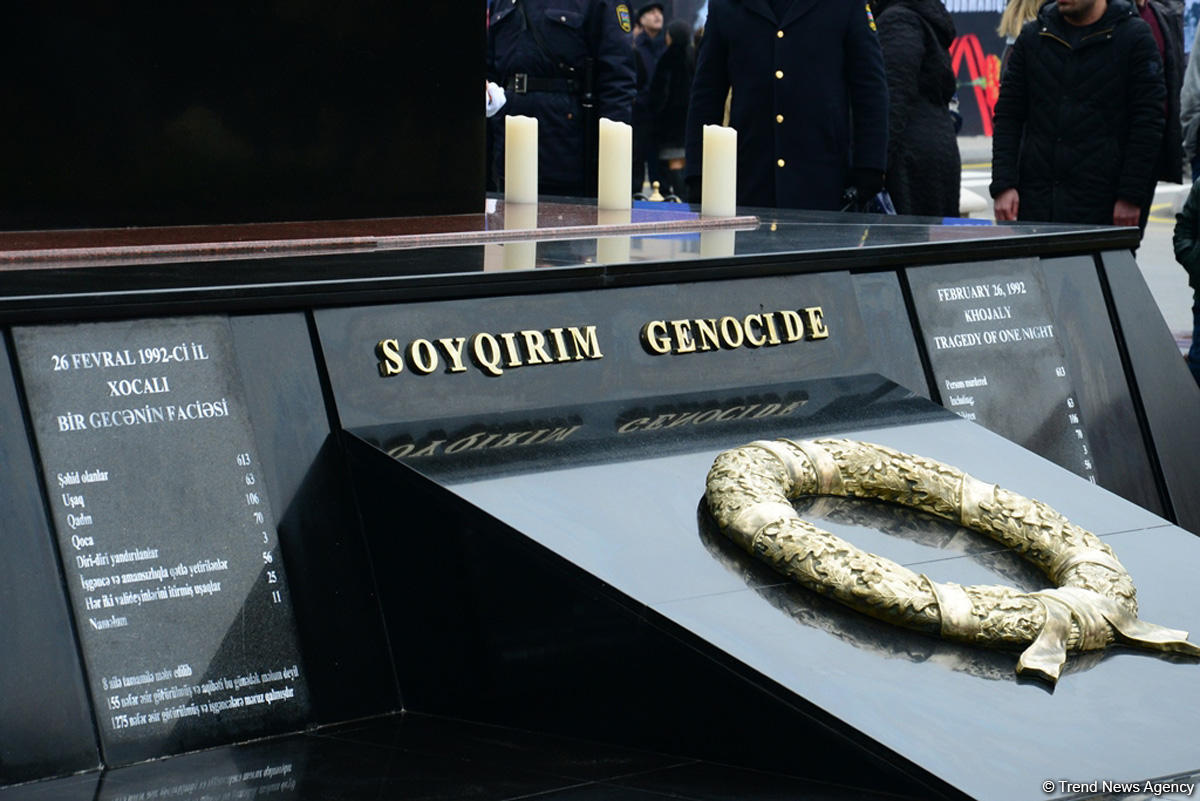Baku, Azerbaijan, Feb. 26
By Ilhama Isabalayeva – Trend:
There are several mechanisms for bringing those who committed the Khojaly genocide to justice, Aydin Safikhanli, head of Azerbaijan’s Ombudsman Office, told Trend Feb. 26.
One of them is the establishment of the international trial for the Khojaly genocide in order to investigate the Khojaly crime and bring the perpetrators to justice, he said.
Safikhanli noted that international trials are a mechanism for administration of justice on individuals and states accused of committing international crimes.
International trials were established on various occasions throughout history, he said, adding that for the first time after the Second World War, the Nuremberg and Tokyo Trials were established to punish those charged with crimes against peace and humanity.
Meanwhile, international trials were established for the administration of justice for individuals who committed genocide in the former Yugoslavia and Rwanda, and crimes against peace and humanity.
According to the Convention on the Non-Applicability of Statutory Limitations to War Crimes and Crimes Against Humanity, dated Nov. 26, 1968, irrespective of the time of committing a crime, the individuals who committed genocide can be a subject to criminal liability at any time, and this keeps the relevance of the problem permanently, said Safikhanli.
Another step towards the punishment of persons responsible for committing the Khojaly genocide is to achieve the international search of persons convinced of their involvement in committing this crime, and bring them to Azerbaijan in order to start prosecution, he added.
More than 7,500 investigative actions were carried out by the Military Prosecutor’s Office of the Republic of Azerbaijan in connection with the Khojaly genocide, and participation of 39 persons in the Khojaly genocide was fully proved.
According to the UN Resolution on “Principles of International Cooperation in the Detection, Arrest, Extradition and Punishment of Persons Guilty of War Crimes and Crimes against Humanity”, dated Dec. 3, 1973, there is special need to take international action aimed at ensuring the prosecution and punishment of persons guilty of war crimes and crimes against humanity.
Safikhanli believes that the practice of bringing the persons, who illegally cross the state border of Azerbaijan and show disrespect to the territorial integrity and sovereignty of Azerbaijan, to the country can be continued with respect to those responsible for committing the Khojaly genocide.
He reminded that 26 years ago, on Feb. 25-26, the Armenian aggressors together with the 366th Motorized Rifle Regiment of the Russian Army attacked the Khojaly town, committed the genocide and as a result, some of the families were totally exterminated, civilians were killed with unprecedented brutality and cruel torture.
The crimes committed deliberately during the Khojaly genocide, with the intention of mass killing of people due to their nationality, should be regarded as genocide according to both international and domestic laws, he continued.
According to international law, genocide is an act against peace and humanity and is considered as one of the most serious international crimes, Safikhanli said.
He went on to say that Azerbaijan’s national leader Heydar Aliyev announced the true essence of the Khojaly genocide and appealed to the UN Security Council to demand the punishment of perpetrators. For the first time in February 1994, the parliament of Azerbaijan issued a legal and political assessment of the Khojaly genocide on the basis of the national leader’s appeal.
Azerbaijan’s President Ilham Aliyev, during his speeches at prestigious international events, has repeatedly noted the importance of bringing the perpetrators who committed the genocide against the Azerbaijani people to justice, strongly demanded international organizations to demonstrate a decisive position on this issue, and spoke about the importance of having a mechanism to implement the resolutions adopted by influential international institutions, and act in line with international law and norms without dual standards.
During his speech at the 72nd session of the UN General Assembly, President Aliyev resolutely emphasized that Armenians committed a war crime by killing 613 civilians, including 106 women and 63 children in Khojaly, said Safikhanli.
He added that one of the perpetrators of this terrible crime against humanity is the current president of Armenia.
Safikhanli also noted that at the initiative of Vice-President of the Heydar Aliyev Foundation Leyla Aliyeva, the “Justice for Khojaly” international campaign plays an important role in bringing the truth about the Khojaly genocide to the world community and achieving the recognition of this tragedy as an act of genocide committed against the Azerbaijani people.
As a result of this, relevant decisions are being made on this genocide act in several countries, said Safikhanli.
As a result of the successful foreign policy conducted over the past years, decisions were made on the Khojaly genocide in the parliaments of 15 countries and relevant resolutions were adopted in 22 US states, he added.






